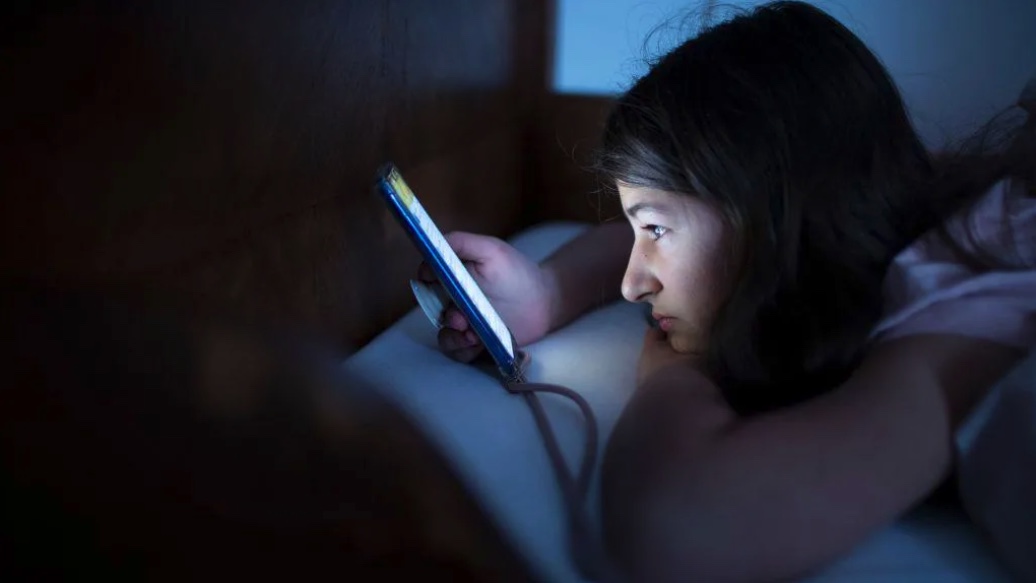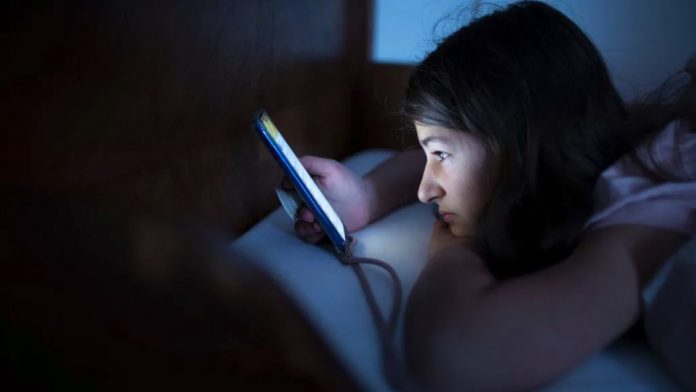ออสเตรเลียเตรียมห้ามเด็กอายุต่ำกว่า 16 ปีใช้โซเชียลมีเดีย หลังรัฐสภาอนุมัติกฎหมายที่ถูกมองว่าเข้มงวดที่สุดในโลก โดยกฎหมายนี้จะเริ่มบังคับใช้ในอีกอย่างน้อย 12 เดือน และกำหนดบทลงโทษปรับสูงสุดถึง 50 ล้านดอลลาร์ออสเตรเลีย (ประมาณ 32.5 ล้านดอลลาร์สหรัฐ หรือราว 25.7 ล้านปอนด์) หากบริษัทเทคโนโลยีไม่ปฏิบัติตาม
นายกรัฐมนตรีแอนโทนี นอร์แมน แอลบานีส กล่าวว่ากฎหมายนี้เป็นไปเพื่อปกป้องเยาวชนจาก “อันตราย” บนโซเชียลมีเดีย ซึ่งเป็นสิ่งที่กลุ่มผู้ปกครองหลายกลุ่มสนับสนุน อย่างไรก็ตาม มีเสียงวิพากษ์วิจารณ์เกี่ยวกับความคลุมเครือในรายละเอียดของกฎหมาย รวมถึงผลกระทบต่อความเป็นส่วนตัวและความสัมพันธ์ทางสังคม
นี่ไม่ใช่ครั้งแรกที่มีความพยายามจำกัดการใช้โซเชียลมีเดียของเยาวชนในระดับสากล แต่การกำหนดอายุขั้นต่ำไว้ที่ 16 ปี ถือว่าสูงที่สุดเมื่อเทียบกับประเทศอื่น ๆ โดยกฎหมายฉบับนี้ไม่อนุญาตข้อยกเว้นใด ๆ ทั้งสำหรับผู้ใช้เดิมหรือผู้ที่มีการยินยอมจากผู้ปกครอง
กฎหมายดังกล่าวผ่านวุฒิสภาด้วยคะแนน 34 ต่อ 19 เมื่อวันพฤหัสบดี ก่อนกลับไปยังสภาผู้แทนราษฎรและได้รับการอนุมัติในช่วงเช้าวันศุกร์
“เราต้องการให้เด็ก ๆ ได้มีวัยเด็กที่แท้จริง และพ่อแม่จะได้สบายใจว่าเรายืนหยัดเคียงข้างพวกเขา” แอลบานีสกล่าวกับผู้สื่อข่าวหลังการผ่านกฎหมาย
กฎหมายนี้ไม่ได้ระบุว่าแพลตฟอร์มใดจะถูกแบน โดยจะขึ้นอยู่กับการตัดสินใจของรัฐมนตรีด้านการสื่อสารของออสเตรเลีย ซึ่งจะได้รับคำแนะนำจากผู้ตรวจการด้านความปลอดภัยบนอินเทอร์เน็ต (eSafety Commissioner) ซึ่งเป็นหน่วยงานกำกับดูแล อย่างไรก็ตาม รัฐมนตรีมิเชล โรว์แลนด์ ระบุว่าแพลตฟอร์มที่จะถูกแบนได้แก่ Snapchat, TikTok, Facebook, Instagram และ X แต่แพลตฟอร์มเกมและแอปส่งข้อความ รวมถึงเว็บไซต์ที่ไม่ต้องใช้บัญชีผู้ใช้ เช่น YouTube จะไม่ได้รับผลกระทบ
รัฐบาลระบุว่าจะใช้เทคโนโลยีตรวจสอบอายุในการดำเนินมาตรการดังกล่าว โดยอยู่ระหว่างการทดสอบตัวเลือกต่าง ๆ ในเดือนข้างหน้า ซึ่งความรับผิดชอบในการติดตั้งระบบนี้จะตกอยู่กับแพลตฟอร์มโซเชียลมีเดียเอง
อย่างไรก็ตาม ผู้เชี่ยวชาญด้านดิจิทัลเตือนว่าไม่มีการรับประกันว่าเทคโนโลยีดังกล่าว ซึ่งอาจพึ่งพาการยืนยันอายุผ่านข้อมูลชีวภาพหรือเอกสารแสดงตัวตน จะมีประสิทธิภาพ นอกจากนี้ยังมีความกังวลเรื่องความเป็นส่วนตัว และตั้งข้อสังเกตว่าข้อจำกัดนี้อาจถูกหลีกเลี่ยงได้ง่าย ๆ ผ่านเครื่องมืออย่าง VPN ที่สามารถปกปิดตำแหน่งของผู้ใช้และทำให้ดูเหมือนว่ากำลังเข้าสู่ระบบจากประเทศอื่น
เด็กที่ฝ่าฝืนกฎหมายนี้จะไม่ถูกลงโทษแต่อย่างใด
ผลสำรวจความคิดเห็นเกี่ยวกับกฎหมายนี้ แม้จะมีจำนวนจำกัด แต่ชี้ว่าผู้ปกครองและผู้ดูแลในออสเตรเลียส่วนใหญ่สนับสนุนมาตรการดังกล่าว
“เป็นเวลานานแล้วที่พ่อแม่ต้องเลือกระหว่างการยอมให้ลูกมีอุปกรณ์ที่เสพติดนี้ หรือการเห็นลูกถูกโดดเดี่ยวและรู้สึกว่าตัวเองถูกทิ้ง” เอมี ฟรีดแลนเดอร์ หนึ่งในผู้รณรงค์สนับสนุนกฎหมายนี้กล่าวกับ BBC
อย่างไรก็ตาม ผู้เชี่ยวชาญหลายคนมองว่ากฎหมายนี้เป็น “เครื่องมือที่ไม่เหมาะสม” ในการจัดการความเสี่ยงจากการใช้โซเชียลมีเดีย และอาจผลักให้เด็กเข้าสู่พื้นที่ออนไลน์ที่มีการกำกับดูแลน้อยลง
ก่อนหน้านี้ Google และ Snap วิจารณ์กฎหมายดังกล่าวในช่วงการปรึกษาหารือสั้น ๆ ก่อนการผ่านกฎหมาย โดยระบุว่ากฎหมายยังขาดรายละเอียด ขณะที่ Meta มองว่ากฎหมายนี้ “ไม่มีประสิทธิภาพ” และไม่สามารถตอบสนองเป้าหมายในการทำให้เด็กปลอดภัยได้
ในข้อเสนอของ TikTok ระบุว่าคำนิยามของแพลตฟอร์มโซเชียลมีเดียของรัฐบาลนั้น “กว้างและไม่ชัดเจน” จนอาจครอบคลุมเกือบทุกบริการออนไลน์
X ตั้งคำถามถึง “ความถูกต้องตามกฎหมาย” ของกฎหมายนี้ โดยชี้ว่าอาจไม่สอดคล้องกับกฎระเบียบระหว่างประเทศและสนธิสัญญาสิทธิมนุษยชนที่ออสเตรเลียลงนาม
ผู้สนับสนุนเยาวชนบางส่วนยังวิจารณ์รัฐบาลว่าไม่เข้าใจบทบาทของโซเชียลมีเดียในชีวิตของเยาวชน และตัดพวกเขาออกจากการมีส่วนร่วมในการแก้ปัญหา
“เราเข้าใจว่าเรามีความเสี่ยงและผลกระทบด้านลบจากโซเชียลมีเดีย แต่เราต้องการมีส่วนร่วมในการหาทางออก” คำแถลงจาก eSafety Youth Council ซึ่งให้คำปรึกษาแก่หน่วยงานกำกับดูแลระบุ
แอลบานีสยอมรับว่าการถกเถียงในเรื่องนี้มีความซับซ้อน แต่ยืนยันว่ากฎหมายดังกล่าวเป็นสิ่งที่จำเป็น
“เราไม่ได้บอกว่าการบังคับใช้กฎหมายนี้จะสมบูรณ์แบบ เช่นเดียวกับการห้ามเด็กอายุต่ำกว่า 18 ปีดื่มแอลกอฮอล์ที่ไม่ได้หมายความว่าจะไม่มีใครฝ่าฝืน แต่เรารู้ว่านี่เป็นสิ่งที่ถูกต้องที่ควรทำ” เขากล่าว
ปีที่แล้ว ฝรั่งเศสผ่านกฎหมายที่กำหนดให้เด็กอายุต่ำกว่า 15 ปีต้องได้รับความยินยอมจากผู้ปกครองในการเข้าถึงโซเชียลมีเดีย แต่มีงานวิจัยชี้ว่าเกือบครึ่งหนึ่งของผู้ใช้ยังคงหลีกเลี่ยงข้อจำกัดดังกล่าวผ่าน VPN
ในสหรัฐฯ รัฐยูทาห์เคยอนุมัติกฎหมายที่คล้ายคลึงกันกับออสเตรเลีย แต่ถูกศาลรัฐบาลกลางตัดสินว่าไม่ชอบด้วยรัฐธรรมนูญ
กฎหมายของออสเตรเลียกำลังถูกจับตามองจากผู้นำทั่วโลก โดยนอร์เวย์ประกาศว่าจะดำเนินการตามแนวทางนี้ และสัปดาห์ที่แล้ว รัฐมนตรีเทคโนโลยีของสหราชอาณาจักรกล่าวว่ามาตรการห้ามลักษณะเดียวกันนี้ “อยู่ในระหว่างพิจารณา” แต่ยืนยันว่ายังไม่มีแผนดำเนินการในขณะนี้
Australia approves social media ban on under-16s

Australia will ban children under 16 from using social media, after its parliament approved the world’s strictest laws.
The ban, which will not take effect for at least 12 months, could see tech companies fined up to A$50m ($32.5m; £25.7m) if they don’t comply.
Prime Minister Anthony Albanese says the legislation is needed to protect young people from the “harms” of social media, something many parent groups have echoed.
But critics say questions over how the ban will work – and its impact on privacy and social connection – have been left unanswered.
This is not the first attempt globally to restrict children’s social media use, but the minimum age of 16 is the highest set by any country. Unlike other attempts, it also does not include exemptions for existing users or those with parental consent.
Having passed the Senate by 34 votes to 19 late on Thursday, the bill returned to the House of Representatives where it passed early on Friday.
“We want our kids to have a childhood and parents to know we have their backs,” Albanese told reporters afterwards.
The legislation does not specify which platforms will be banned. Those decisions will be made later by Australia’s communications minister, who will seek advice from the eSafety Commissioner – an internet regulator that will enforce the rules.
However the minister, Michelle Rowland, has said the ban will include Snapchat, TikTok, Facebook, Instagram and X. Gaming and messaging platforms are exempt, as are sites that can be accessed without an account, meaning YouTube, for instance, is likely to be spared.
The government says will it rely on some form of age-verification technology to implement the restrictions, and options will be tested in the coming months. The onus will be on the social media platforms to add these processes themselves.
However digital researchers have warned there are no guarantees the unspecified technology – which could rely on biometrics or identity information – will work. Critics have also sought assurances that privacy will be protected.
They have also warned that restrictions could easily be circumvented through tools like a VPN – which can disguise a user’s location and make them appear to be logging on from another country.
Children who find ways to flout the rules will not face penalties, however.
Polling on the reforms, though limited, suggests it is supported by a majority of Australian parents and caregivers.
“For too long parents have had this impossible choice between giving in and getting their child an addictive device or seeing their child isolated and feeling left out,” Amy Friedlander, who was among those lobbying for the ban, recently told the BBC.
“We’ve been trapped in a norm that no one wants to be a part of.”
But many experts say the ban is “too blunt an instrument” to effectively address the risks associated with social media use, and have warned it could end up pushing children into less regulated corners of the internet.
During a short consultation period before the bill passed, Google and Snap criticised the legislation for not providing more detail, and Meta said the bill would be “ineffective” and not meet its stated aim of making kids safer.
In its submission, TikTok said the government’s definition of a social media platform was so “broad and unclear” that “almost every online service could fall within [it]”.
X questioned the “lawfulness” of the bill – saying it may not be compatible with international regulations and human rights treaties which Australia has signed.
Some youth advocates also accused the government of not fully understanding the role social media plays in their lives, and locking them out of the debate.
“We understand we are vulnerable to the risks and negative impacts of social media… but we need to be involved in developing solutions,” wrote the eSafety Youth Council, which advises the regulator.
Albanese has acknowledged the debate is complex but steadfastly defended the bill.
“We don’t argue that its implementation will be perfect, just like the alcohol ban for [children] under 18 doesn’t mean that someone under 18 never has access – but we know that it’s the right thing to do,” he said on Friday.
Last year, France introduced legislation to block social media access for children under 15 without parental consent, though research indicates almost half of users were able to avoid the ban using a VPN.
A law in the US state of Utah – which was similar to Australia’s – was overturned by a federal judge who found it unconstitutional.
Australia’s laws are being watched with great interest by global leaders.
Norway has recently pledged to follow in the country’s footsteps, and last week the UK’s technology secretary said a similar ban was “on the table” – though he later added “not… at the moment”.
By Hannah Ritchie, BBC News

















